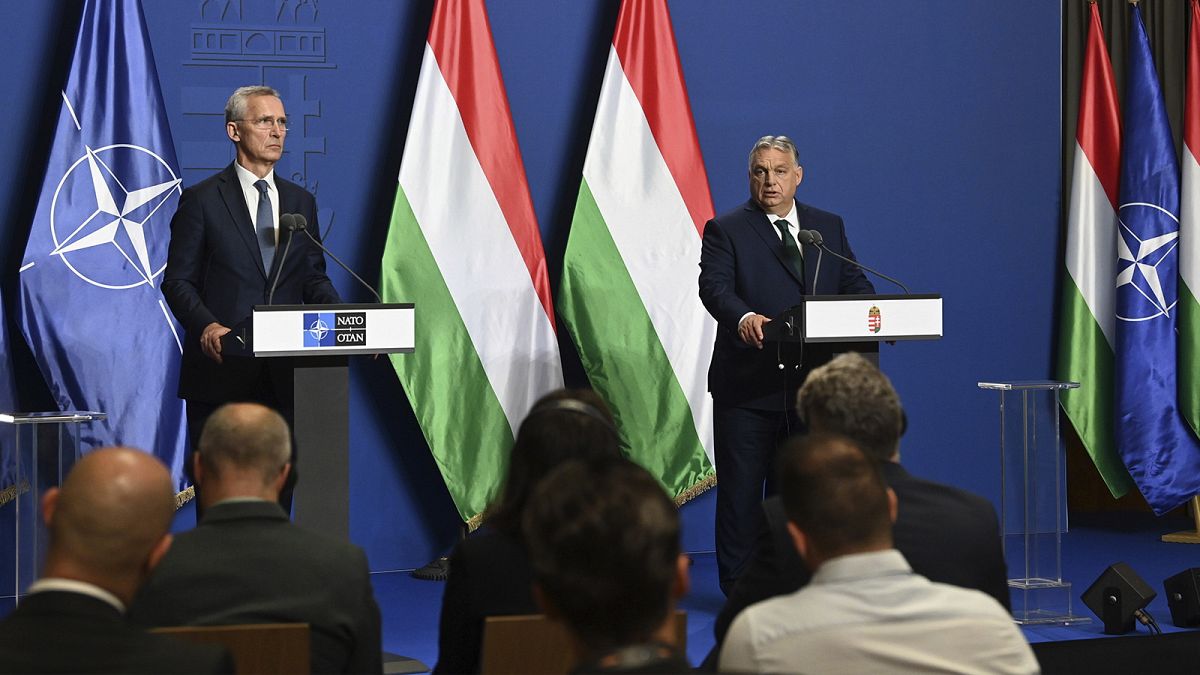Hungary’s Viktor Orbán and NATO Secretary General Jens Stoltenberg recently reached a deal after a day of challenging negotiations. Stoltenberg accepted Orbán’s decision for Hungary not to participate in NATO’s defense of Russia’s war in Ukraine. However, Orbán pledged not to obstruct other nations from financially supporting Ukraine. The NATO chief expects allies to coordinate and provide security assistance and training for Ukraine, as well as make a long-term financial pledge for military support. Orbán assured that Hungary will not oppose these efforts and will continue to fulfill its NATO commitments in full.
Orbán stated that Hungary’s 1,300 soldiers are involved in NATO operations and the country meets the alliance’s requirement to allocate 2% of GDP to its national military budget. However, Orbán’s government, following a reinforced mandate from recent European elections, has decided not to participate in a war outside of a NATO area of operation. This decision means that Hungary will not send personnel or provide funds for the conflict between Russia and Ukraine. Hungary also ensures that its territory will not be used for any involvement in the war. Despite Hungary’s non-participation, Orbán confirmed that Hungary will uphold its NATO commitments.
In Washington next month, US President Joe Biden and his NATO counterparts are set to discuss and agree on a new system to provide Ukraine with more predictable and long-term security and military training assistance. This summit is expected to further strengthen NATO’s support for Ukraine. The 32-member alliance makes decisions by consensus, allowing any member to have a veto. Orbán’s assurance not to oppose other allies from supporting Ukraine financially removes a potential obstacle in reaching an agreement for increased assistance.
The negotiations between Orbán and Stoltenberg were described as “difficult” due to the differing views on Hungary’s involvement in NATO’s defense of Ukraine. Despite Hungary’s decision not to participate in the military conflict, Stoltenberg emphasized the importance of NATO members working together to support Ukraine’s security needs and provide long-term assistance. By accepting Hungary’s non-participation, Stoltenberg recognized Orbán’s position while ensuring that NATO as a whole remains committed to aiding Ukraine and fulfilling its collective defense obligations.
Overall, the agreement between Hungary and NATO reflects a delicate balance between respecting a member’s sovereignty and the alliance’s goal of providing security and assistance to countries in need. While Hungary will not be directly involved in the conflict between Russia and Ukraine, it has committed to supporting NATO’s broader objectives and maintaining its current level of military engagement within the alliance. The upcoming summit in Washington will provide an opportunity for NATO leaders to further address and strengthen their support for Ukraine, demonstrating the alliance’s solidarity and commitment to promoting stability and security in the region.










